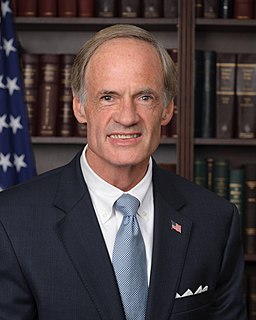A Quote by Terry Pratchett
There's one thing you can say for air pollution, you get utterly amazing sunrises.
Related Quotes
I know Teddy Kennedy had fun at the Democratic convention when he said that I said that trees and vegetation caused 80 percent of the air pollution in this country. ... Well, now he was a little wrong about what I said. I didn't say 80 percent. I said 92 percent-93 percent, pardon me. And I didn't say air pollution, I said oxides of nitrogen. Growing and decaying vegetation in this land are responsible for 93 percent of the oxides of nitrogen. ... If we are totally successful and can eliminate all the manmade oxides of nitrogen, we'll still have 93 percent as much as we have in the air today.
If you visit American city, You will find it very pretty. Just two things of which you must beware: Don't drink the water and don't breathe the air. Pollution, pollution, They got smog and sewage and mud. Turn on your tap and get hot and cold running crud. See the halibuts and the sturgeons Being wiped out by detergents. Fish gotta swim and birds gotta fly, But they don't last long if they try. Pollution, pollution, You can use the latest toothpaste, And then rinse your mouth with industrial waste.
My guess is that while the elites would like cleaner air, they are not willing to give up the convenience of being able to use their cars at will to get it, perhaps because they believe (I suspect incorrectly) that they can protect themselves from the consequences of vehicular pollution by investing in air-conditioners and air purifiers.
In my home state of Delaware, we've done our homework and worked hard and, as a result, we've made great strides in cleaning up our own air pollution. Unfortunately, a number of the upwind states to the west of us have not made the same commitment to reducing harmful pollution by investing in cleaner air.
Today, about 40 percent of America's carbon pollution comes from our power plants. There are no federal limits to the amount those plants can pump into the air. None. We limit the amount of toxic chemicals like mercury, and sulfur, and arsenic in our air and water, but power plants can dump as much carbon pollution into our atmosphere as they want. It's not smart, it's not right, it's not safe, and I determined it needs to stop.


































